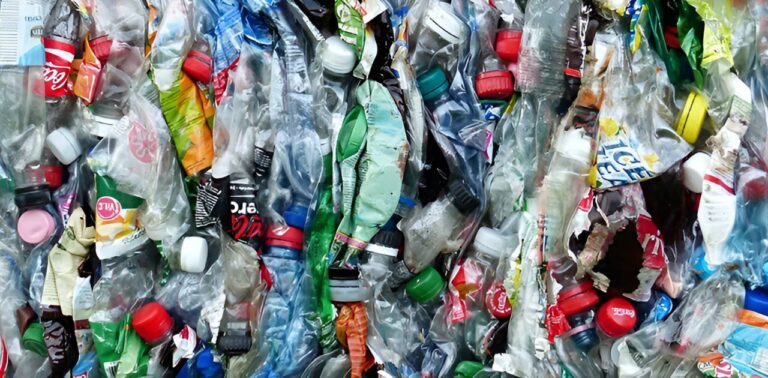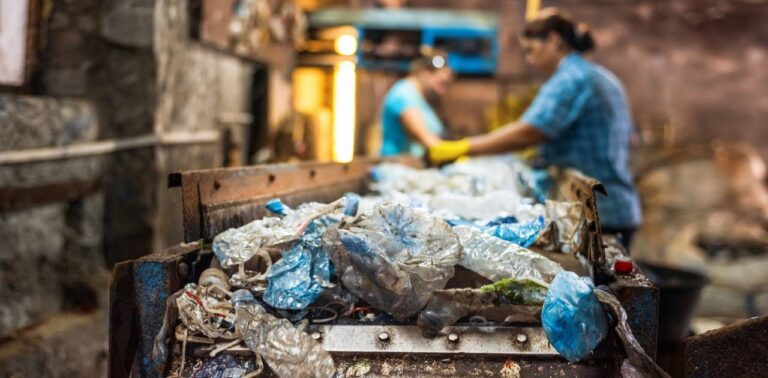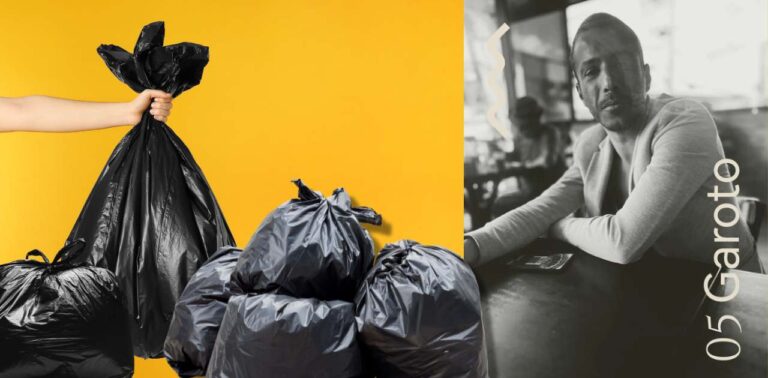Recycling plastic bottles is a fundamental process for preserving the environment and reducing the impact of plastic waste. With increasing awareness of the damage caused by improper disposal of plastics, the process of recycling plastic bottles, especially those made of PET (Polyethylene Terephthalate), has become an essential aspect in the fight for sustainability.

The Role of PET in Recycling
PET is one of the most widely used and valued types of plastic in the industry due to its versatility and durability. This noble material can be recycled many times, transforming it into new products and helping to reduce the need to produce more virgin plastic. However, for plastic bottle recycling to be effective, it is crucial that the process is carried out correctly, starting with the proper disposal of used bottles.
The Correct Disposal of Plastic Bottles
The first step in recycling plastic bottles is to ensure that they are disposed of correctly. This starts with separating the bottles from the regular trash. To make the recycling process easier, it is important to empty the bottles, clean them with a quick wash, crush them to take up less space, and separate them from organic waste. If your city does not have a separate collection system, it is still recommended that you separate the recyclables so that they are ready for the sorting process.
This initial care is essential because it facilitates the work of cooperatives and sorting centers, which are responsible for preparing plastic bottles for recycling. When the bottles arrive clean and separated, the recycling process becomes more efficient and less costly, both in terms of water and the chemicals needed for decontamination.
Sorting and Preparation for Recycling
After the plastic bottles are collected, they are sent to a sorting center. There, the bottles are separated by color, which adds value to the material when it is sold to recyclers. Sorting by color is important because different applications for recycled PET may require plastics of specific shades. In addition, the bottles are pressed, which makes it easier to transport in large quantities and optimizes storage space.
Recyclers purchase these large quantities of pressed PET, usually in tons, to begin the recycling process. Recycling plastic bottles on this scale allows large volumes of waste to be transformed into new products, helping to reduce the amount of plastic that ends up in landfills or, worse yet, in the oceans.
Crushing and Flaking
Once plastic bottles arrive at the recycling plant, the next step is shredding. At this stage, the bottles are ground in large shredding machines, turning them into small plastic flakes. These flakes are the basis for reusing the material, as they can be used in a wide variety of new applications.
The quality of PET flakes is directly influenced by the cleanliness of the bottles during collection. When bottles are dirty or contaminated with food residue, the cleaning and decontamination process becomes more expensive and consumes more resources, such as water and chemicals. Therefore, raising public awareness about the importance of cleaning bottles before discarding them is vital to the efficiency of plastic bottle recycling.
Cleaning and Decontamination of Plastic Flakes
After shredding, the plastic flakes undergo a rigorous washing and decontamination process. This step is crucial to ensure that the recycled PET is free of impurities and ready for reuse in new production. Clean PET flakes are more valuable and can be used in higher-quality applications.
Decontamination is a necessary step for recycled PET to be used in products that come into direct contact with consumers, such as clothing and packaging. Therefore, cleaning plastic bottles at the time of disposal directly contributes to the efficiency and sustainability of the recycling process, reducing the need for additional resources in the decontamination phase.
The Extrusion Process: Turning Flakes into New Products
With the PET flakes cleaned and decontaminated, the material is ready to be sent to extruders. Extruders are machines that melt the plastic flakes and mold the material into new shapes, depending on the desired application. This extrusion process is what makes it possible to create a wide variety of products from recycled plastic bottles.
The uses for recycled PET are vast and include:
- Textile Industry: Recycled PET can be turned into fibers for the production of sportswear, t-shirts, abadás, backpacks and other clothing items. This is one of the most common uses for recycled PET, showing how recycling plastic bottles can positively impact the environment.
- Automotive Industry: In the manufacture of interior fabrics for upholstery, carpets and even parts for boats, recycled PET offers a sustainable and resistant alternative to traditional materials.
- Construction and Decoration: Recycled PET is used in flooring, carpets, doormats for utility areas, and even in stuffing sofas, chairs and pillows. In addition, curtains, tarpaulins for awnings and tents are other examples of how recycled PET can be reused.
- Industrial Articles: From paint rollers to ropes and hand tools, recycled PET finds a variety of applications in industry, helping to reduce material waste.
- Garbage Bags and Collectors: Recycled PET is also used in the production of garbage bags and collectors, closing the recycling cycle and promoting the conscious use of resources.
- Chemical Use: Alkyd resins, adhesives and other chemical products can be derived from recycled PET, showing the versatility of this material in the market.
The Importance of Recycling Plastic Bottles for the Environment
Recycling plastic bottles is more than just an industrial process; it is an essential practice for protecting the environment. Each recycled bottle is one less step towards the accumulation of plastic in oceans and landfills, contributing to the conservation of ecosystems and the reduction of pollution.
By properly disposing of plastic bottles and supporting the recycling process, we can all do our part to preserve the environment. Recycling plastic bottles not only reduces waste, but also promotes the reuse of materials, closing the life cycle of products and boosting the circular economy.
Helping to recycle plastic bottles is an act of environmental responsibility that benefits society as a whole. With everyone’s participation, we can ensure that PET plastic continues to be a valuable resource and that future generations can enjoy a cleaner, more sustainable planet.
Check out other interesting facts about recycling clicking here.
Learn how to make art by recycling, Click here.
Summary




I need help with my final project on the topic of recycling plastics in soda bottles. 3rd year bachelor's degree in metallurgy and materials
Hello Virgílio, see if this link helps you: http://setorreciclagem.com.br/category/reciclagem-de-plastico/
Dear!
I am doing a final project for my course, Production Engineering and I am having great difficulty because I cannot find concrete information about the transformation of PET bottles into flakes, I have collected enough information about the process, however, I cannot find much information about the market for the sale of this raw material "Flakes", such as buyers and market price. If anyone has any information, I would be grateful.
Att: Petterson Batista
For technical and market information, please contact http://abipet.org.br and the http://www.cempre.org.br